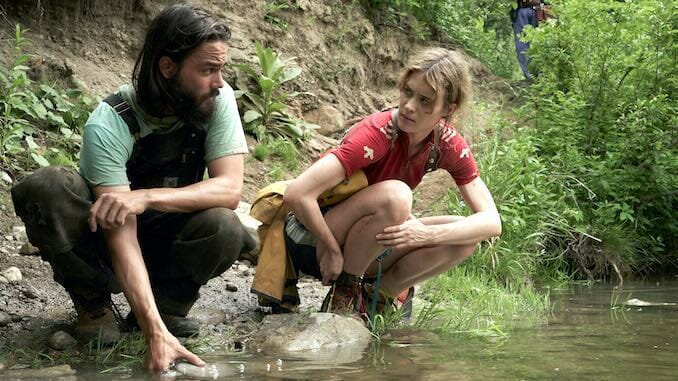Station Eleven Has Pulled Off the Miracle of Grounded Apocalyptic Drama
Photo Courtesy of HBO
There is no way to talk about HBO’s magnificent miniseries Station Eleven without talking about The Leftovers. Beyond the thematic similarities—humanity trying to cope in the aftermath of an unexpected global disaster—the creator, Patrick Somerville, was a writer for The Leftovers, and it’s evident from the start that despite the many distinctions, there is a lineal atmospheric relationship here. You could argue that in order for Station Eleven to exist in its best possible form, The Leftovers had to come first. (And perhaps Lost had to come even before The Leftovers, and so on and so forth back to the first moving image of a train going through a tunnel.)
What distinguishes Station Eleven from its stylistic predecessors, and what makes it better, is how Somerville, his writers, and the ridiculously talented quartet of directors who took the helm in Season 1 have managed to plant their narrative roots firmly in the ground, rejecting the crutch of inexplicable supernaturalism even in a post-apocalyptic world where doing so is a serious challenge. Nor do they go the other way—the way of The Walking Dead—and succumb to the allure of grim horror that must be so tempting in a world bereft of law and order. It’s a narrow line to walk, but Somerville’s team have mastered this particular tight rope in a way that no show of the genre has ever quite managed; the result can be almost unbearably beautiful. And if they have a god, that god is art.
None of this is meant to diminish The Leftovers or Lost, but only to point out that with Station Eleven, we’ve reached the next stage of the genre’s evolution. The apocalypse is very much on our collective minds lately, apocalypse art is especially compelling, and The Leftovers established a new artistic standard over three gorgeous seasons. Yet if you ever overhear a conversation in which one person tries to convince another to watch, or if you’ve been part of such a conversation yourself, inevitably this line comes up:
-

-

-

-

-

-

-

-

-

-

-

-

-

-

-

-

-

-

-

-

-

-

-

-

-

-

-

-

-

-

-

-

-

-

-

-

-

-

-

-








































